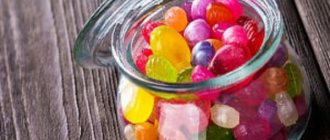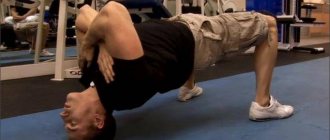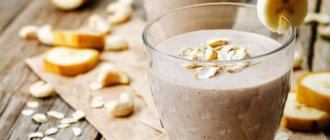Many athletes - both professionals and amateurs - cannot resist a cup of strong aromatic coffee before or after training. This is understandable: after all, caffeine has a significant effect on both the physical and emotional state of a person, toning them up, increasing concentration, strength and endurance. However, it cannot be said that the effect of drinking a tonic drink during sports training can definitely be assessed as positive. The benefits or harms of an invigorating drink depend on several factors.
Coffee is not as scary as they say...
Even one sip of aromatic drink affects our body. The components contained in coffee (there are more than 100 of them in total) quickly penetrate the blood and affect many processes. So, what do science and medicine say about the effect of this drink on the body?
- It is a well-known fact that drinking coffee causes your blood pressure to rise slightly. If we are talking about one cup, then the pulse slows down a little, but after the second cup the heart rate speeds up.
- Coffee stimulates the production of hydrochloric acid in the stomach, so drinking a cup after a meal is not so bad, but we do not recommend doing this on an empty stomach - it can cause irritation of the mucous membrane.
- There is also some diuretic effect, which many consider too weak and unworthy of attention, although this depends solely on the individual characteristics of the body.
- Caffeine invigorates and promotes the release of adrenaline, which, in turn, helps to “open” the lungs, making breathing easier, and causes the liver to release glycogen into the blood, providing the body with additional energy. It has been proven that coffee stimulates the production of dopamine - the “happiness hormone”. If there is an excess, the opposite effect is observed: sleep disturbance, anxiety, irritability.
Many people equate coffee with a drug, and there is some truth in this. A person not only psychologically gets used to starting the work day with an invigorating drink or drinking coffee before a workout, his body also physically becomes dependent. Abruptly quitting caffeine after a long period of continuous use can lead to headaches, fatigue, depressed mood and inability to concentrate.
A little about caffeine itself
A cup of coffee in the morning is a way to spur the body and put it into working order after waking up. How is this effect achieved? Of course, due to the presence of such a component as caffeine in the drink.
Caffeine is a fairly powerful alkaloid that has a pronounced stimulating effect on the central nervous system. At the same time, the excitability of the psyche increases, and an increase in performance is observed. However, like any substance of this type (and caffeine, to a certain extent, can be classified as a drug), it requires regular dosage increases. And this is precisely what explains the fact that over time a person needs to drink more and more coffee in order to “start” his body in the morning.
The benefits and harms of coffee before training
So, we briefly outlined the general aspects of what you should know about the effects of coffee on the body above. Now let's move directly to the question: can athletes drink coffee before training? The answer to this question is not clear - a flavored drink can bring both benefit and harm to the athlete. It all depends on the individual characteristics of the body and the amount of coffee drunk. Let's start with the positive aspects and the benefits that an athlete can get from a cup of an invigorating drink.
Beneficial properties of coffee
The list of beneficial properties endowed with this beloved drink is quite impressive. Below are its main advantages that athletes can wisely use to slightly improve their athletic performance.
Increased stamina
Caffeine is the most popular among mild stimulants and for good reason. Athletes training specialists in the States have proven that strength increases by about 10% if the body is given a caffeine boost before training.
Even at the highest level of sports, coffee is used by athletes to enhance performance. Therefore, the Anti-Doping Committee is considering adding caffeine-containing drugs to the list of prohibited substances. Manufacturers of sports drinks and snacks do not even hide the fact that a third of all products contain caffeine. And the British company TrueStart Coffee recently launched a special luxury freeze-dried coffee specifically for athletes who want to optimize performance. By the way, this brand was founded by triathlete spouses.
Relief of muscle pain
Drinking coffee before a workout may not completely eliminate subsequent muscle pain, also known as DOMS, but it will noticeably reduce the pain.
In one study, subjects were given caffeine at 5 mg/kg body weight (equivalent to about 2.5 cups of espresso) and then subjected to a grueling workout. As a result, the pain on days 2-3 after training was approximately half as great.
Improved reaction and alertness
Australian scientists from a medical university concluded that caffeine increases brain activity mainly in the area responsible for attention and short-term memory.
First of all, the stimulating effect of coffee is caused by the ability of caffeine to masquerade as adenosine, known as the fatigue hormone. Adenosine accumulates in the body while you are awake and when it reaches a certain point, the brain decides it is time to sleep. Caffeine binds to certain receptors instead of adenosine and tricks the gray matter into continuing to function in an excited state.
Acceleration of metabolism
Coffee speeds up metabolism by 3-4% at rest and up to 15% during training. At the same time, caffeine enhances the breakdown of fat for energy. To ensure that fats are taken from personal reserves, it is not recommended to drink coffee with cream or milk before training. While fat is being broken down, glucose and glycogen are not used, this allows the necessary level of sugar in the plasma to be maintained, which ensures a feeling of fullness.
Additional source of nutrients
Coffee beans contain about 35% stable solids, which remain unchanged during long-term storage and pass into water after brewing.
Main components of coffee:
- Caffeine – 0.7-3.2%;
- Protein – 9-19%;
- Fats – 9-18%;
- Carbohydrates – 4.2-11.5;
- Organic acids up to 10.5%;
- Microelements (potassium, magnesium, calcium, sodium, manganese);
- Vitamins (PP, B1, B2).
All of the above substances are important for the body and will not become superfluous during exercise. For example, potassium and magnesium activate muscle work and participate in the synthesis of protein and ATP - a universal source of energy for all biochemical processes. Potassium provides electrical potential to nerve cells, regulating muscle contraction. Vitamin PP (niacin) is involved in the metabolism of fats and proteins, tissue respiration, glycogenolysis.
Negative effects of coffee on the body
The negative effect on the body is usually caused by individual intolerance, abuse of the drink or health problems for which it is contraindicated. There are also several negative aspects depending on the properties of the drink itself. So, who and why should not drink coffee before training?
Calcium leaching
After drinking a coffee drink, the acid-base balance shifts towards acids, so calcium reserves are released, which are necessary to neutralize them. One cup of coffee is responsible for the loss of approximately 40 milligrams of calcium. In defense of coffee, I would like to note that the main culprits in calcium removal are carbonated sweet drinks, pickled, spicy and sour foods. The honorable second and third places were shared by semolina porridge and meat products. Therefore, giving up coffee does not mean that the calcium content in the body is not in danger.
Reverse effect and addiction
The effect of coffee is often the opposite. For the first time, after 20-30 minutes of training, you feel a surge of energy, but subsequently, the body, exhausted from heavy exertion, turns out to be even more tired. In addition, like any stimulant, caffeine is addictive. To get the desired effect, you have to increase the “dosage”, which entails a number of negative consequences. For people who often drink this drink, it does not matter how long before a workout they drink coffee, since the desired result will not be achieved, since the body is used to it.
Effect on the heart
Not the most encouraging studies were recently conducted by specialists from the University of Zurich and the Center for Integral Human Physiology. They found that two cups of coffee before exercise limits the ability of the heart muscle to increase blood flow, which reduces the flow of oxygen and nutrients to tissues and organs. The participants had their blood flow measured before and after exercise and then divided into two groups. In the first group, the subjects drank two caffeine-containing tablets (about 2 cups of strong coffee), while in the second they did not drink anything. In a calm state, all subjects had blood flow within normal limits; after the end of the workout, those who took caffeine noted a 25% decrease in blood flow through the heart.
First of all, this study has implications for people suffering from low blood flow. Whether it is necessary to drink coffee before training is also worth considering for those who live and, accordingly, train in mountainous areas.
Caffeine is a diuretic
Coffee is not the strongest, but it is still a diuretic, which means it is able to “expel” water from the body. In addition to this, a significant amount of fluid is lost during increased physical activity. All together can lead to varying degrees of dehydration, which puts stress on the kidneys. Therefore, if you decide to drink coffee before training, you should also stock up on water.
If this does not happen all the time, there is nothing particularly to be afraid of, but when even minimal dehydration becomes regular, the water-salt balance is disrupted, and the risk of developing renal failure increases.
Coffee and caffeine
Caffeine is an alkaloid, a compound of plant origin, with pronounced physiological activity. Contained in coffee seeds, tea leaves, cocoa fruits, cola fruits and some other plants. The substance is synthesized by them to protect against insects, as well as to encourage pollinators.
In everyday life, people often perceive coffee and caffeine as a single whole, but this approach is not entirely correct. Let's pay attention to the plate, which clearly shows the alkaloid content in various foods and drinks. Perhaps a cup of coffee before training will not be the only source of an invigorating substance.
Table. Caffeine content in some foods and drinks
| Drink or product | Average portion (ml/g) | Caffeine content (mg) |
| Arabica coffee | 170 | 40-60 |
| Coffee Excelsa | 170 | 40-60 |
| Coffee Robusta | 170 | 140-200 |
| Espresso | 30 | 30-50 |
| Instant coffee | 100 | 30-50 |
| Decaf (ground or instant) | 170-200 | 8-16 |
| Cocoa | 170-200 | 10-15 |
| Coca-Cola, Pepsi, Mountain Dew | 100 | 10-20 |
| Green tea | 170-200 | 12-30 |
| Black tea | 170-200 | 40-60 |
| Bottled tea (Lipton/Nestea) | 100 | 5-8 |
| Energy drinks | 100 | 30-50 |
| Other soft drinks | 100 | 10-15 |
| Black chocolate | 100 | 60-80 |
What does caffeine contain?
1.Caffeine in sports nutrition
You can buy caffeine as part of sports nutrition, but you shouldn’t expect much fat burning from it. You should not take increased doses: otherwise, if you overdo it, you may experience, in addition to increased heartbeat, irritability, sweating, insomnia, tremors in the limbs.
2. Caffeine tablets
It contains sodium benzoate and synthetic caffeine and is available in 100 mg tablets. It is necessary to take 1-2 tablets before starting a workout, which allows you to increase physical activity, relieve drowsiness and chronic fatigue.
3.Natural coffee
Try to always take regular black ground coffee, and save tablets and sports nutrition as a last resort. After all, a cup of hot coffee is tasty and pleasant.
Coffee before exercise for weight loss
Coffee really helps you lose weight when combined with exercise, this is not a myth. As already mentioned, the drink increases endurance, reduces appetite, helps you do your best in classes and speeds up metabolism. We are talking about natural coffee before a morning workout without sugar and especially high-calorie cream. If the body receives a portion of glucose, it will not need to burn fat to get energy and deposits will be intact.
Harvard scientists decided to find out which pre-workout coffee is more suitable for burning fat: black or green. As a result, the “green” group lost an average of 5.5 kg over 3 months, and the “black” group lost up to 2 kg.
The weight loss effect of coffee can be enhanced if the product is used only as an additional factor, and the main emphasis is placed on proper nutrition and exercise.
What does caffeine do for bodybuilding?
As a result of research, it was found that caffeine during training does not consume muscle glycogen reserves. Thanks to this, the athlete’s performance increases and his overall psychological mood improves.
Due to this, caffeine is often included in so-called “pre-workout drinks” - drinks that make the athlete perk up and perform exercises at an accelerated pace. Caffeine blocks the so-called “fatigue receptors”, making the bodybuilder less tired and able to perform a greater volume of exercise.
Caffeine also has a fat-burning effect.
Naturally, during the “caffeine cycle” the athlete can train longer, perform more approaches and repetitions. This leads to an increase in muscle mass and strength.
However, many athletes are wary of taking caffeine because it has been shown to block the effects of creatine. It has not yet been possible to determine for certain whether this theory is true or false.
What to replace coffee with?
Lovers of coffee taste and aroma can try replacing the classic drink with decaffeine. Caffeine is removed from green coffee beans, but this has little effect on the aroma and taste of the drink. It is believed that decaf is practically no different from classic coffee, and therefore is an excellent alternative for fans.
If coffee as a drink is not interesting, but its stimulating effect is what is needed, then a cup of strong tea can be a substitute for coffee. More radical replacement options include caffeine tablets, energy drinks and pre-workout mixtures. There is even special coffee fortified with protein.
When and how much coffee can an athlete drink?
The benefits and harm that a drink can bring are more or less clear. It remains to find the answer to two important questions, which will determine whether the drink will help or cause a negative reaction in the body.
Recommended Dosages
So, the first question is, how much coffee can an athlete drink without it negatively affecting him? The principle applies here: more does not always mean better. For pre-workout coffee to work as a stimulant and have only a positive effect on the body, it must be consumed in reasonable quantities.
Of course, in each individual case, the number of cups drunk is highly individual, however, there are several basic recommendations:
- If a positive effect during training is needed, then the average dose of caffeine for athletes should be 150-500 mg (3-5 mg/kg body weight). This is approximately 1-2 cups of espresso. A smaller amount of coffee will not have a noticeable effect, and a larger amount may lead to undesirable consequences.
- The maximum daily dose of caffeine for an adult is approximately 1000 mg, and a single dose is 400 mg. Exceeding the maximum permissible doses can cause death. Symptoms of intoxication are as follows: insomnia, anxiety, headaches, nausea, rapid breathing and irregular heart rhythm. In more severe cases, muscle twitching, incoherent speech and thoughts. These reactions often disappear as the substance is eliminated from the body.
- To avoid addiction, you need to take a break for 5-7 days every two weeks. This gap will be enough to clear the receptor cells, which will again be ready to adequately perceive the stimulant and work in the right direction.
When is the best time for an athlete to drink coffee?
The second important question is how long before a workout should you drink coffee? As practice shows, the aromatic stimulant is best consumed 30-40 minutes before the start of classes. If drunk immediately before exercise, it simply will not have time to take effect. The maximum concentration of coffee components in the blood is observed 40-50 minutes after consumption, and the half-life is 5-10 hours. Before training, you should avoid high-calorie coffee with sugar.
Despite the many positive aspects, you should not rely on coffee as a magic wand that can improve your figure with one stroke or make you do the impossible. Whether to drink coffee before training in the gym is something everyone decides for themselves; we can definitely say that a cup of a good natural drink an hour before morning exercise will not do any harm.
Rate the material
Share:
Other drinks
There are many more drinks that are popular among athletes. Although many of them are not recommended to drink before exercise:
- Sweet sodas and juices contain a lot of sugar, which changes the composition of the blood and makes you feel tired.
- Fresh fruits, berries, and vegetables are recommended to be diluted with water (1:2) before consumption to protect the mucous membranes of the digestive organs from irritation. Vegetable juices need to be lightly salted to saturate the body with sodium salts.
- Smoothies and fermented milk drinks (yogurt, kefir, fermented baked milk) should not be consumed before classes. This is due to the fact that they are quite high in calories and cause a feeling of overeating.
Supermarket energy drinks contain a lot of caffeine and other substances that give you energy. However, after a while the athlete will feel overwhelmed.
You may also be interested in: Detox cocktails for weight loss: recipes at home











